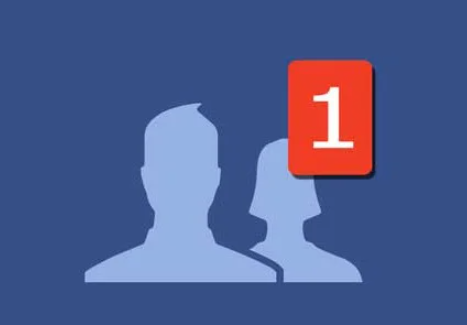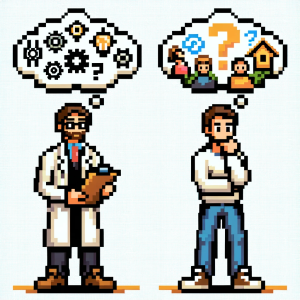
The Social Media Work Revolution
If you think about how you spend your day, chances are you’re connected to social media. Whether it’s checking updates on Facebook, tweeting, or networking on LinkedIn, social media has become a crucial part of our daily lives. But did you know that it’s also changing the way we work?
How Social Media Transformed Communication at Work
Social media has completely transformed the way businesses communicate. Companies now use platforms like Twitter and LinkedIn to interact with customers, share updates, and build their brands. Internally, tools like Slack and Microsoft Teams have replaced many traditional forms of communication, making it easier for teams to stay connected, even when working remotely.
Imagine you’re working on a project and need some quick feedback. Instead of sending a formal email and waiting for a response, you can just shoot a message in your team’s Slack channel. Instant communication helps to keep the workflow smooth and efficient. This kind of seamless interaction is one of the many ways social media has improved workplace communication.
The New Face of Human Resources
Recruitment and hiring practices have also seen a massive shift thanks to social media. Companies now look at potential employees’ LinkedIn profiles, and even Facebook and Twitter accounts to get a sense of who they are. This new method can be a double-edged sword, as it offers more information but can also introduce biases. For example, seeing someone’s profile picture could inadvertently lead to judgments based on appearance, which is something traditional resumes avoid.
However, social media allows companies to reach passive candidates – people who aren’t actively job hunting but might be interested if the right opportunity comes along. By targeting ads based on users’ profiles, companies can attract highly qualified individuals who might not have been found through traditional job postings.
Navigating the Blurred Lines Between Work and Life
One of social media’s most significant impacts is blurring the boundaries between work and personal life. Employees might friend their colleagues on Facebook or follow them on Instagram, which can lead to stronger bonds but also potential conflicts. For instance, seeing a co-worker’s political posts could change your perception of them and affect your work relationship.
Additionally, the convenience of social media can make it hard to disconnect from work. Many of us are guilty of checking work emails or messages outside of office hours. This constant connectivity can lead to burnout if not managed properly. Companies are beginning to recognize this issue and are setting boundaries to help employees maintain a healthy work-life balance.
Training and Development in the Digital Age
Social media platforms like YouTube and LinkedIn Learning have revolutionized how employees learn new skills. Instead of traditional classroom training, employees can now access a wealth of information and tutorials online. This on-demand learning is especially beneficial for remote workers or those with busy schedules.
For example, a software developer can follow coding tutorials on YouTube to learn a new programming language or join a LinkedIn Learning course on project management. These resources provide flexibility and enable continuous professional development, which is crucial in today’s fast-paced work environment.
The Impact on Employee Well-Being
The effect of social media on employee well-being is a mixed bag. On the one hand, staying connected with colleagues through platforms like Slack can create a sense of community and support, especially for remote workers. On the other hand, excessive use of social media can lead to distractions and increased stress.
Research has shown that taking short social media breaks during work can help employees feel more relaxed and improve their mood. However, it’s essential to strike a balance to avoid the pitfalls of overuse, such as procrastination or feeling overwhelmed by the constant influx of information.
Ethical and Legal Challenges
As social media continues to integrate into the workplace, it brings several ethical and legal challenges. For example, should employers have access to employees’ social media accounts? How do we protect employees’ privacy while leveraging social media data for business purposes?
There have been instances where employees faced repercussions for their social media activity outside of work, raising questions about free speech and privacy. Companies must navigate these complex issues carefully, creating policies that respect employees’ rights while protecting the organization’s interests.
What’s Next for Social Media and Work?
Further advancements in social media technology are bound to shape the future of work. We might see more sophisticated collaboration tools, advanced data analytics to better understand employee behavior, and new forms of work emerging that we can’t even imagine today.
As we move forward, it’s crucial to continue researching the impacts of social media on work to develop best practices that enhance productivity, well-being, and fairness in the workplace.
Join the Conversation
What are your thoughts on the role of social media in the workplace? Do you think it’s more beneficial or problematic? Share your experiences and opinions in the comments below!
- How do you manage the balance between work and personal life on social media?
- Have you used social media for professional development? Share your favorite resources!
Transform Your Science World
Get the latest and most inspiring scientific updates with ‘This Week in Science’! Perfect for educators and science enthusiasts, our free weekly newsletter delivers groundbreaking research and stories that ignite your passion for learning and teaching. Sign up today and transform your approach to science.



